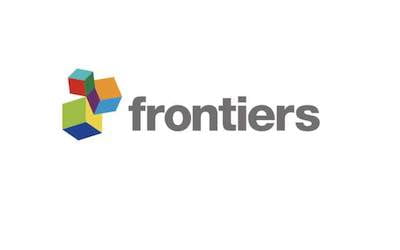
Capturing talk – Frontiers papers available
In one of our first posts last year, we mentioned we would be co-editing a Frontiers research topic (see that post from March 2021 here). The research topic is called Capturing Talk: The Institutional Practices Surrounding the Transcription of Spoken Language.
For our first post of 2022, We are pleased to announce there are already five open access papers available, with more to come. These are in the journals Frontiers in Communication, and Frontiers in Psychology. The papers are summarised below, and you can access each one via the links on their titles. Some of these are already notching up lots of hits!
From verbal account to written evidence: Do written statements generated by officers accurately represent what witnesses say? by R. Milne , J. Nunan, L. Hope , J. Hodgkins and C. Clarke
This paper is about transcriptions of evidential statements from witnesses compared with reports generated by interviewers (a manual statement). As noted by the authors, results show that compared to the full transcribed interviews, the manual transcripts “contained numerous errors including omissions, distortions, and the inclusion of information not mentioned in the verbal interview”.
Translated Transcripts From Covert Recordings Used for Evidence in Court: Issues of Reliability by D. Gilbert and G. Heydon
Gilbert & Heydon describe their paper as being about
the language capabilities of community translators and interpreters undertaking … work for law enforcement agencies in the Australian state of Victoria. Using data collected during the observation of public court trials, this paper presents a detailed analysis of Vietnamese-to-English translated transcripts submitted as evidence by the Prosecution in drug-related criminal cases.
Data analysed in the paper includes observations of drug trials in court and resulting translated transcripts, interviews with legal personnel (judges, barristers) as well as interpreters and translators, transcripts from court proceedings and analysis of data from a legal database. A case study reported in the paper compares a court translation and an alternative translation, with the authors observing “significant errors” in the court transcription, as well as a lack of coherence. They conclude that this results in diminished reliability of evidence, and “deficiencies in Australia’s forensic translation capability”.
The benefits of a Jeffersonian transcript by Song Hee Park and Alexa Hepburn
Park & Hepburn describe their paper as being about
the benefits of investing time in the Jeffersonian system. Rather than simply describing the system, we will illustrate the analytic usefulness of its systematic and detailed transcription practices; we show how transcription facilitates a clearer picture of how things get done in interaction.
They explain that using a Jeffersonian system mean that “crucial components” of interaction such as prosody and volume are not “bleached out”.
Specifying Challenges in Transcribing Covert Recordings: Implications for Forensic Transcription by R. Love and D. Wright
The Love & Wright contribution is an experimental paper looking at transcripts produced by eight different transcribers, which is of great interest to the Hub. The audio was indistinct in nature, and from a multi-party conversation in a restaurant. Results looked at factors such as how the transcribers fared in terms of speaker attribution and turn consistency, as well as factors relating to the content of the transcriptions. Examples of the latter are things such as phonetic similarity (a great example from the paper is confusion between extensively and ostensibly) and lexical variation (accounting for differences across transcripts which could not be explained phonetically). We highly recommend this paper for readers who enjoy topics the Hub is interested in – we will be referring to this in our own work!
Doing the organization’s work – Transcription for all practical governmental purposes A. Holder , C. Elsey, M. Kolanoski , P. Brooker and M. Mair
This paper compares transcripts, and the way they are used, in the US military and in NASA – in these organisations “transcription forms a routine part of how they operate as worksites”.
The authors note that
[o]ne major difference between them is that the US military selectively transcribe this data (usually for the purposes of investigating incidents in which civilians might have been injured), whereas NASA’s “transcription machinery” aims to capture as much of their mission-related interactions as is organizationally possible…
The authors also look at how transcripts are used both within the workplace (i.e. for accounting and transparency) as well as outside the organisations for other purposes (such as in research, or for artificial intelligence in the case of NASA). The conclusion of this paper is a particularly interesting reflection on the use of transcripts across the two organisations, which the authors note “can document too little or too much—both creating distinct problems for people relying on/using the transcripts”. They also find that transcripts are an “approximation” of the original record, and that ” ‘reading’ the transcripts of NASA and the US military requires an ethnographic understanding of the working practices of these organizations”.
Helen and I are really happy to be on the editorial team for this great volume. Our group is as follows:
Capturing Talk Editorial Team (in alphabetical order)
Felicity Deamer, Aston University
Helen Fraser, The University of Melbourne
Martha Komter, Netherlands Institute for the Study of Crime and Law Enforcement (NSCR)
Debbie Loakes, The University of Melbourne
Emma Richardson, Aston University
Kate Haworth, Institute for Forensic Linguistics, Aston University
You can also follow this link, then click on individual names under “topic editors”, to find out more about each of us.
Please note that we will be updating this post as soon as more papers are published within the “Capturing Talk” research topic. And check back in soon for more Hub news – we have lots of plans underway for 2022!